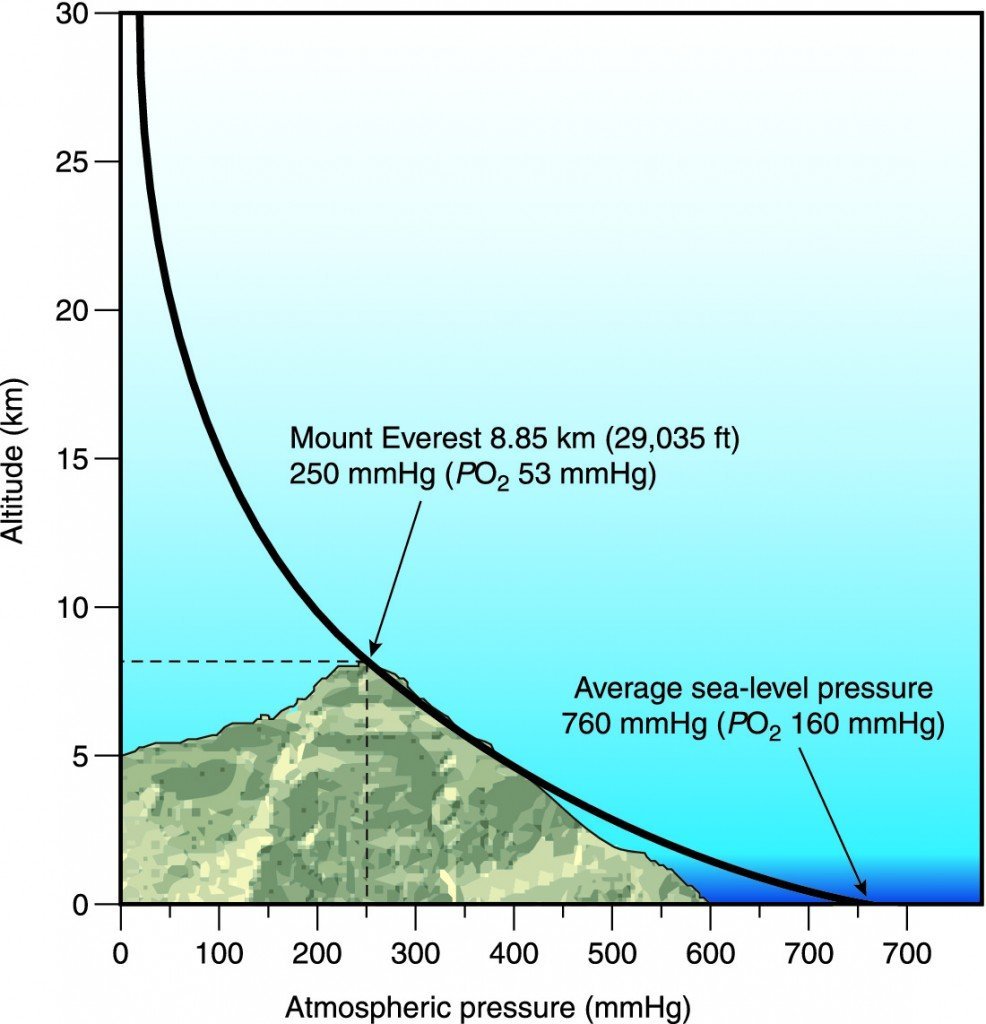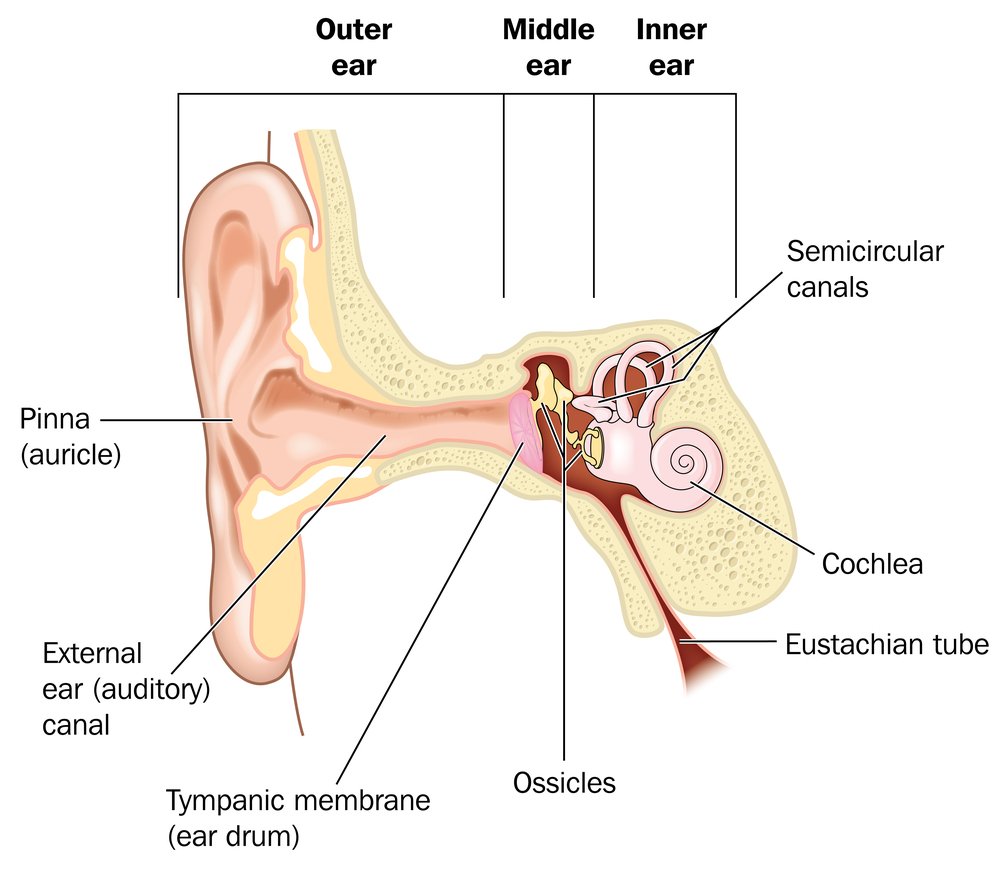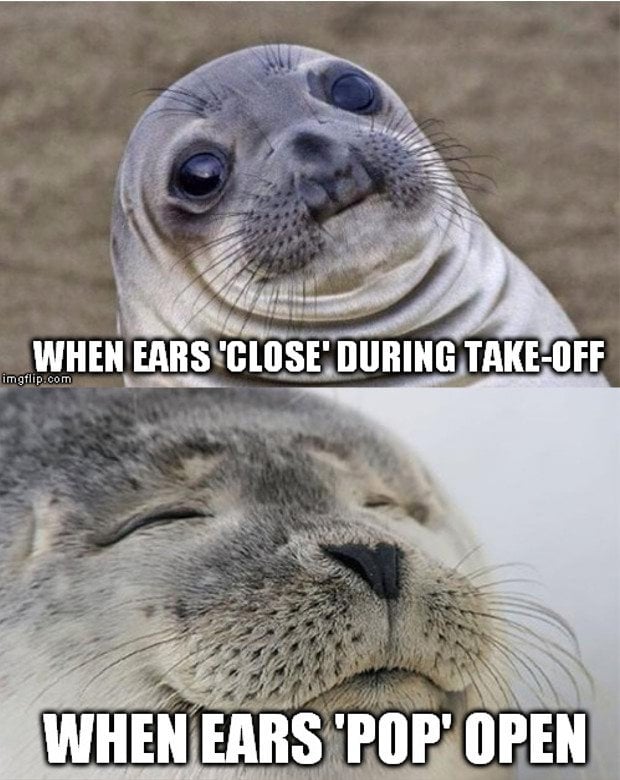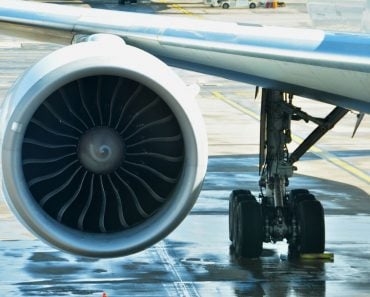Table of Contents (click to expand)
The Eustachian tube is a small channel connecting the inner ear to the throat on each side. These tubes are attached to the tensor veli palatini muscles in your soft palate and are automatically activated whenever you swallow or yawn, causing that characteristic pop that makes your ear as sensitive as Spiderman’s!
Whether you’re a frequent flier or a virgin in the skies, there are a few things that you will always experience when traveling in an airplane, particularly during landing and take-off. As the airplane ascends and attains a stable altitude, you might feel a sense of weightlessness, have a funny sensation in your stomach and your ears will most likely pop.
What does the popping of your ears even mean? And why does it happen in airplanes during take-offs and landings?
Recommended Video for you:
Air Pressure
Just like the way pressure increases as you go deeper underwater, air pressure (or atmospheric pressure) decreases as you go higher up, such that any point on the ground experiences more pressure than something a few thousand feet above it.

This is because the air at ground level is denser, as there are more and more air molecules pushing down on the molecules below, thereby increasing atmospheric pressure at lower altitudes. You should note that the atmosphere we’re surrounded by is actually quite heavy; in fact, we should be crushed by the weight of it, in theory, but luckily that doesn’t happen (Read more about it here: Why Don’t We Get Crushed By Atmospheric Pressure?).
Inside The Ear
In order to for us to hear things and, more importantly, preserve the integrity of our entire auditory system, it’s essential that the air pressure between the air inside and outside of our ears remains roughly the same. This balance is maintained by something known as the Eustachian tube, a small channel connecting the inner ear to the throat on each side. These tubes are attached to the tensor veli palatini muscles in your soft palate and are automatically activated whenever you swallow or yawn, causing that characteristic pop that makes your ear as sensitive as Spiderman’s!

Sounds from the outer ear are passed to the inner ear by a thin vibrating membrane called the eardrum. For the eardrum to act normally, the air pressure between the air inside and outside of the ear has to remain (almost) the same. However, when you’re taking off in an airplane, or ascending rapidly in any manner whatsoever, that balance begins to dwindle.
Since air pressure inside your ear is higher than the air pressure outside, the eardrum bulges outward, the result of which is that stuffy feeling in your ears, when every sound around you feels muffled for a few minutes, until you “pop” them back to normal. As the airplane reaches a certain height and stops ascending any further, the Eustachian tube opens itself up, making that popping sound in the process.

How To Actively Pop Your Ears?
Since the whole problem arises due to changes in air pressure between the inner and outer ear, all you have to do is find a way to keep the air pressure equal. This can be done by actively opening up the Eustachian tubes by swallowing or yawning on purpose. This will cause the air pressure inside your ear to sync up with the air pressure outside (i.e. in the airplane cabin). Chewing gum during landing also helps alleviate this problem.

Alternatively, you can prevent your ears from popping by exerting counter-pressure. With your mouth closed, pinch your nose to shut both nostrils and blow gently. With no other outlet, the air presses on the Eustachian tubes to equalize the air pressure. Don’t blow too hard, as it can be quite painful if you do so. Just blow gently and long enough to ‘un-pop’ your ears.
Next time you’re flying in airplane and notice that your neighbor is closing their mouth and pinching their nose, you can assume they know a bit about physics – or at least the way that our ears are designed!













